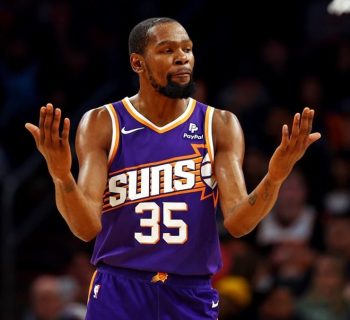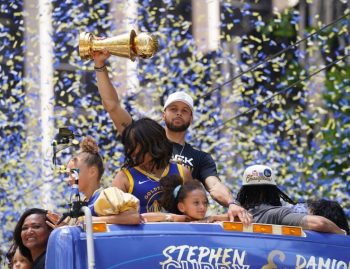NBA
Missing NBA Playoffs Might Be Best For Spurs In The Long Run

Entering March 11 at 37-29, the San Antonio Spurs are clinging to the seventh seed in the Western Conference. The club finds itself staring at the possibility of missing the playoffs, remarkably, for the first time since 1997. It’s been 20 consecutive seasons of postseason basketball in San Antonio, but as the Houston Rockets showed us when their winning streak was snapped at the Raptors on Thursday night, all good things must come to an end.
Or, in this case, should.
Let’s be real for a second. There’s no way on earth that a team coached by Gregg Popovich would go out and cheat the game of basketball by not trying to win at all costs. But understand something here; the last time the Spurs failed to make the playoffs, it led them to Tim Duncan.
With the 2018 NBA Draft considered to be quite deep, it might not be the worst thing in the world for the Spurs to find themselves on the outside looking in once the playoffs began.
Where the team may have a distinct advantage is in Kawhi Leonard, and with him, it’s worth believing that the Spurs could pull off an improbable upset should they get into the playoffs. As teams arrive at the 70 games played mark, ankles are tender and knees are creaky. It’d be difficult to find any significant rotation piece that is at or near 100 percent, and Leonard would likely be laughing in the face of whoever is crossmatched against him.
Having only played nine game so far this season, should Leonard return for the season’s final 12 to 15 games, he would presumably have enough time to get himself back into game shape and find his rhythm heading into the playoffs. If the Spurs were to finish as the seventh or eighth seed, they should be considered a worst case scenario matchup for either the Rockets or the Golden State Warriors.
Mind you, despite his success, Mike D’Antoni is 0-5 against Popovich in the playoffs. There’s probably a reason for that.
Don’t forget, the Spurs were the only team that seemed to have the Warriors on the ropes in Game 1 of the Western Conference Finals. One turn of Leonard’s ankle changed everything, though.
So yes, if there is one team to believe can cause disruption, it’s probably the Spurs. But as currently equipped, are the Spurs truly capable of becoming champions? With Tony Parker and Manu Ginobili relegated to 20-game per minute rotation pieces, should we really believe that 32-year-old LaMarcus Aldridge, 37-year-old Pau Gasol, 31-year-old Rudy Gay and the collection of pieces that include Danny Green, Patty Mills, Kyle Anderson and Dejounte Murray are capable of winning all the marbles?
Perhaps they are, but Tim Duncan isn’t walking through that door, and for that reason, betting on these Spurs is a risky proposition, at best.
If there’s one thing Popovich has done over the years, it’s been making the most of what he’s been given. And if there’s one thing that the scouting staff in San Antonio has done consistently, it’s been hit home runs with the picks they’ve been given.
Here’s something truly remarkable: since the Spurs drafted Tim Duncan first overall in the 1997 NBA Draft, by virtue of their dominance, their own draft pick has never been earlier than 20th overall. What they have done, however, is turn late first round picks and second round picks whose perceived value was quite low into home run talents.
The three most famous examples of this point are Tony Parker, Manu Ginobili and George Hill. Ginobili was selected with the 57th overall pick in the 1999 NBA Draft, Parker was selected with the 28th pick in the 2001 NBA Draft and Hill was selected with the 26th pick in the 2008 NBA Draft.
Parker and Ginobili became Hall of Famers and two of the three best players on a perennial contender that was able to win four championships. Hill became such a great player in San Antonio that he was almost immediately believed to the successor to Parker, whose value had increased so much so that the prevailing thought among scouts and agents was that the Spurs would opt to let Parker walk as a free agent.
Instead, in a surprise move, the Spurs opted to trade Hill for a little known commodity who would become the MVP of the 2014 NBA Finals, Kawhi Leonard.
Aside from the obvious winning picks, here are the other notable selections made by the Spurs over the years: John Salmons (26th pick in 2002), Luis Scola (55th pick in 2002), Leandro Barbosa (28th pick in 2003), Beno Udrih (28th pick in 2004), Ian Mahinmi (28th pick in 2005), Tiago Splitter (28th pick in 2007), Goran Dragic (45th pick in 2008) and Cory Joseph (29th pick in 2011).
Although some of those picks may have been made at the behest of other teams (some of them were involved in draft day trades), an important theme in San Antonio has been the maximizing of their draft assets. For example, Salmons was traded on to the Philadelphia 76ers on draft night, but the Spurs got Speedy Claxton in return. Claxton became an important rotation player on the 2003 championship team.
So, in all of that, ask yourselves a simple question… Would the Spurs be better served by qualifying for the playoffs this season? If the playoffs began today and the seeds help, they would be crossmatched against the Warriors in the first round. Although it is still mathematically possible for the team to finish as highly as third, the Spurs have the third most difficult schedule remaining—only the Suns and Pacers will face tougher opponents, according to tankathon.com.
In a draft featuring plenty of impact prospects projected to be selected in the lottery, the Spurs may have improbably experienced injury setbacks to their star player in the right season.
The night is often darkest just before the dawn. And remember, the season before the Spurs ended up with Tim Duncan, their future Hall of Fame cornerstone, David Robinson, had persistent injury issues.
History often repeats itself, and in San Antonio, depending on how things shake out, we may be in the process of becoming witnesses.













